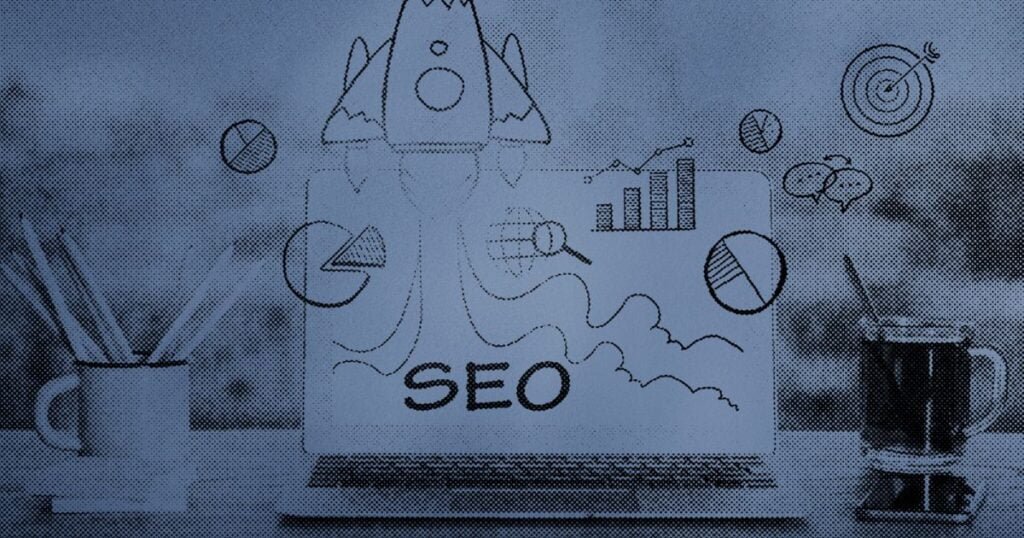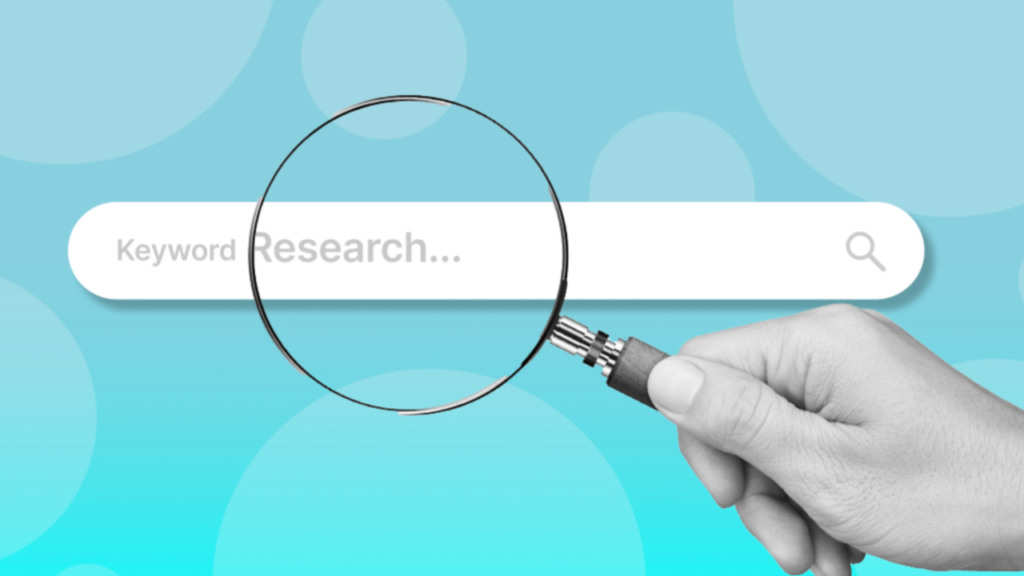Understanding the differences between b2b seo and b2c seo is crucial for targeted digital strategies. While SEO is still crucial across both industries (with more than 70% of buyers researching online), the approaches vary The goals, methods and audience requirements are different for each and directly influence approaches to SEO.
From the last 8 years, I’ve been working on topics of technology, ai and seo. I’ve read almost 20+ sites to extract the main information and then combine in one piece (that is this blog)…
Read More: Get_Ready_Bell:Client_Pulse
What Are the Main Differences Between B2B SEO and B2C SEO?
There is a big difference between B2B and B2C SEO in terms of focus of the audience, depth of the content and conversion goals. B2B SEO is focused on informative, in-depth content that creates long term relationships. B2C SEO drivers are strong and short, are high traffic keywords, and create easier conversions with engaging, visual content for a broader audience.
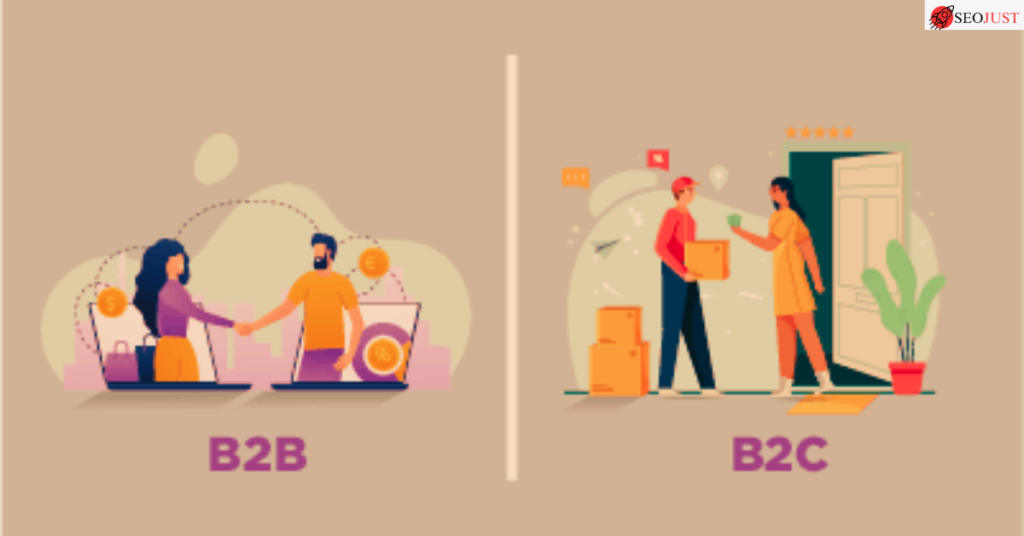
| Aspect | B2B SEO | B2C SEO |
| Audience | Decision-makers, 80% on LinkedIn | 70% general consumers on social |
| Content | 57% in-depth, educational | 80% quick, visual |
| Keywords | Long-tail, niche (60% focus on B2B) | Short-tail, high-volume (70% focus) |
| Sales Cycle | Long, up to 6+ months | Short, often days or less |
| Social Media | LinkedIn (80% B2B), Twitter | Instagram, TikTok (75% B2C) |
| Link-Building | Industry sources (65% authority links) | Influencers, high-traffic sites (55%) |
| Tone | Formal, 70% data-driven | Casual, friendly (60% prefer visual) |
Pros: B2B SEO Vs B2C SEO
| Aspect | Pros of B2B SEO | Pros of B2C SEO |
| Targeting | Attracts high-value, long-term clients | Reaches broader, high-traffic audience |
| Content | Builds authority with in-depth, educational content | Appeals with quick, visual content |
| Engagement | Effective for trust-building through technical content | Influencers expand visibility and brand reach |
| Conversions | Drives quality leads despite lower traffic volume | Boosts fast conversions due to short sales cycles |
Cons: B2B SEO Vs B2C SEO
| Aspect | Cons of B2B SEO | Cons of B2C SEO |
| Sales Cycle | Long sales cycles delay conversions | Quick conversions may lead to lower retention |
| Keywords | Niche keywords limit search volume | High competition on popular keywords |
| Cost | In-depth content can increase production costs | Requires consistent content updates to match trends |
| Audience | Limited audience reach compared to B2C | Harder to retain broad, fast-paced audience |
Audience Targeting: Strategic Detail vs. Broad Engagement
So, differences between b2b seo and b2c seo are easy to identify. In B2B, the targets are company decision makers such as CEOs. Most of these buyers have deep research done before purchasing.
Specific keywords used in attracting niche traffic works in B2B SEO. B2B buyers expect 60 percent of custom content. They use a strategy focused on industry specific needs increasing engagement. Relevant leads drive! Keywords are often very technical and focused on solutions.
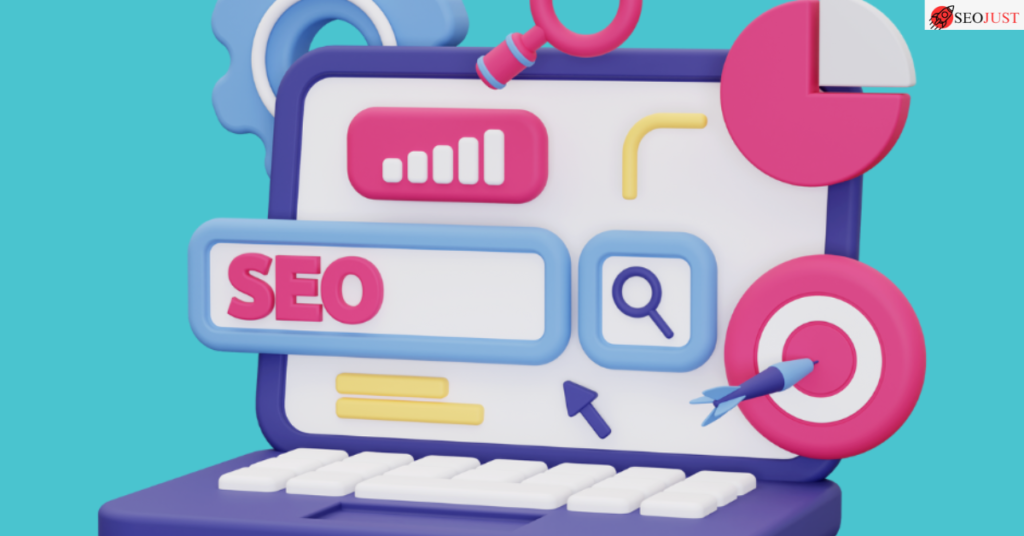
Read More: Alabama Technology Network
B2C SEO is aimed more at a huge consumer audience. The engagement is more emotional, visually driven, here. B2C keywords include high traffic terms such as best smartphones. For instance, consumers make decisions based on aesthetics and convenience.
According to data, more than 80% of buyers are driven by visuals. The approach here is a quick decision, so it needs simple, engaging keywords, and content.
Sales Cycle: Extended Process vs. Quick Turnaround
The B2B sales cycle is long, often months, so fast communications are not necessary. According to the recently released B2B Ecosystem Report, 74 percent of B2B purchases take four or more months.
They need multiple consultations about that product; and they need that product in great detail. In this B2B SEO, this lead is being nurtured with deep, trust building content. Relationship building is done using white papers and reports.
In B2C sales cycles are quick, sometimes transactions occur in minutes. The countries of South America have been forced to respond to the fast pace caused by single buyer decisions.
According to B2C merchants, over 80% of all buyers value convenience and speed. Engaging, easy to access content sells well to B2C seo. It is for immediate satisfaction and trying to encourage us to go with the impulse buying.
Read More: Zhuoxin Data Technology Leadership
Keyword and Content Strategy: Specific Insight vs. General Appeal
Long tail and usually niche specific, B2B keywords are the focus of search. The conversions on these might be better but these terms have a lower search volume. Educationally focused B2B keywords make up around 57% of B2B keywords.
If the goal is to build credibility and a level of trust over time, this is the strategy. The B2B content is a little longer, and it goes into more technical details.
In B2C, keywords in general, greatly trafficked terms. A lot of clicks are driven by terms like “best tablets.” B2C content tends to be shorter, more visual. A whopping 80% of consumers act on visuals when making decisions. Again, this SEO strategy is very direct and focused just on quick sales without giving time for long term engagement.
Link-Building: Niche Authority vs. Broad Influence
The goal of B2B link building is authority within a specific niche industry. Industry specific sources provide B2B backlinks of around 65%. It helps to fortify credibility as well as significance for audiences who are the focus of the tactic. For B2B link building, the quality is taken more seriously than quantity. This often includes in depth articles, case studies and industry reports.

For B2C, influencers and wide reach media are used for link building strategies. Visibility has a huge role in the social media platform. Nearly 55% of B2C companies work with influencers. This is a cost effective way to improve brand awareness. They introduce products to diverse audiences so that there is enough trust and reach.
Read More: How Does Granular Recovery Technology Work
On-Page Optimization: Technical Precision vs. User Experience
B2B on-page optimization emphasizes technical SEO components. Site structure and mobile-friendliness are critical here. About 72% of B2B searches begin on mobile. Detailed meta descriptions and schema markup enhance SEO. B2B sites focus on structured data for better search visibility.
B2C SEO prioritizes user experience and visual appeal. Page load speed is essential to retain visitors. Studies show 80% of users abandon slow sites. Clear navigation and intuitive design help boost engagement. B2C sites use images and videos to enhance the user experience.
Content Types: In-Depth Knowledge vs. Instant Appeal
B2B content aims to educate and build authority. Common formats include white papers, case studies, and guides. Over 70% of B2B content is educational and detailed. This helps buyers make informed, long-term decisions. B2B audiences value well-researched content that supports logical decisions.
In B2C, content is short, visual, and highly engaging. Formats include product reviews, blog posts, and social media updates. Visuals are essential; over 60% of consumers value images in content. B2C content appeals to emotions and encourages quick actions. This SEO style aims to engage quickly and retain customer interest.
Read More: Logitech Dongle Software
Conversion Goals and KPIs: Lead Nurturing vs. Direct Sales
B2B SEO focuses on nurturing high-quality leads. Metrics often include engagement rates and lead conversions. B2B leads have a high lifetime value, often over $1,000.
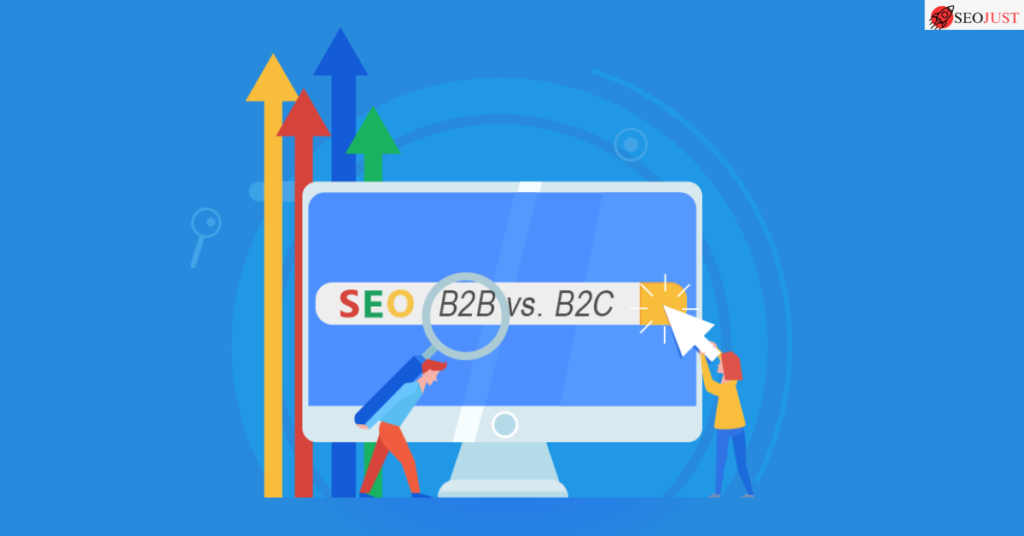
Content downloads and newsletter sign-ups indicate effective engagement. The focus is long-term, building lasting relationships.
In B2C, conversion metrics focus on direct sales and site traffic. Traffic and immediate purchase rates are key KPIs. Over 60% of B2C marketers prioritize direct conversions. Calls-to-action guide customers to fast decisions. This strategy supports quick, frequent conversions over time.
Social Media Role: Brand Visibility vs. Professional Networking
In B2B, social media builds professional connections and authority. Platforms like LinkedIn and Twitter are popular choices. LinkedIn generates 80% of B2B leads in social media. Content often includes industry insights, white papers, and case studies. This content approach builds credibility and nurtures business relationships. B2B brands focus on data-backed posts to attract professionals.
For B2C, social media focuses on visibility and engagement. Platforms like Instagram and Facebook dominate the B2C space. Around 70% of B2C buyers discover products on social platforms. Influencers play a significant role in B2C outreach. About 55% of B2C brands collaborate with influencers. This approach drives brand exposure and encourages instant purchases.
B2B uses social media for long-term networking. B2C, however, aims for quick sales and high engagement. B2B content is formal, prioritizing facts and expertise. In contrast, B2C content is engaging, visual, and conversational. These differences between b2b seo and b2c seo reflect the unique goals of each audience.
Read More: TechEmbers: Company Profile & Funding Overview
Buyer Intent: Problem-Solving vs. Immediate Satisfaction
B2B buyers look for solutions to business problems. Their approach is research-heavy and often analytical. Around 74% of B2B buyers start with a problem-solving need. B2B SEO uses informational keywords, like “best CRM for companies.” Content focuses on comparisons, case studies, and expert articles. This approach appeals to those valuing data-backed insights.
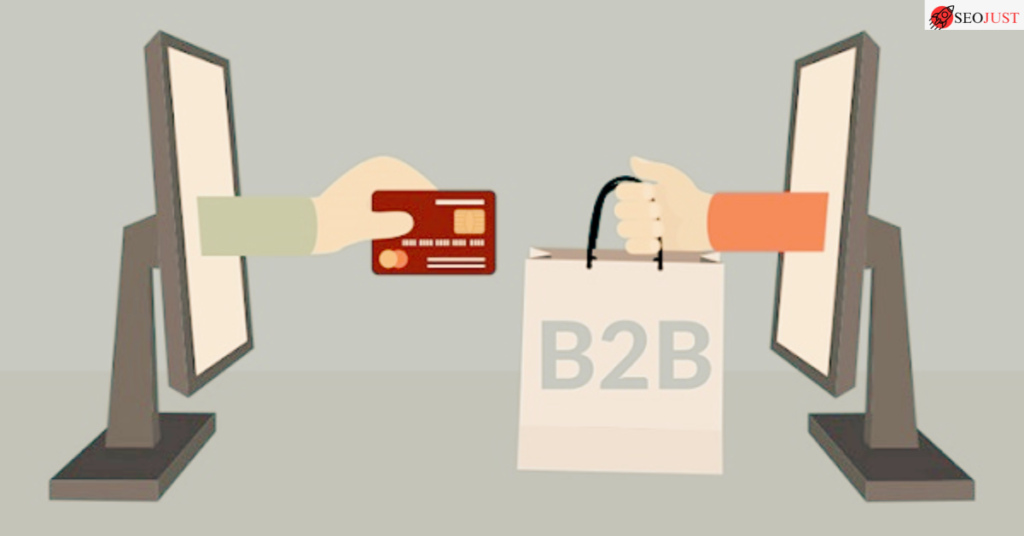
B2C buyer intent is often quick and emotionally driven. Many B2C purchases are impulsive and convenience-focused. About 60% of consumers make emotion-driven purchase decisions. B2C SEO focuses on transactional keywords, like “best laptop under $500.” Content highlights benefits and ease of use. B2C buyers want instant, clear information for quick choices.
Understanding buyer intent shapes effective SEO strategies. B2B content provides in-depth solutions to complex issues. B2C content, however, appeals to immediate needs and desires. Each approach meets its audience’s decision-making process.
Content Depth and Tone: Detailed Analysis vs. Casual Language
B2B SEO requires in-depth, analytical content to engage professionals. Formats like white papers and industry reports perform best. Around 57% of B2B marketers focus on educational content. B2B tone is formal and detailed, reflecting business needs. Readers expect insights, data, and practical solutions.
In B2C, content is casual and consumer-friendly. B2C buyers prefer short, visually engaging content. Over 80% of consumers want easy-to-read, visual content. Common formats include blog posts, product reviews, and social media updates. The tone is relatable, creating quick emotional connections.
Content depth and tone influence audience engagement significantly. B2B focuses on analytical content for informed decisions. B2C relies on approachable content for faster connections. Tailoring tone and depth enhances SEO effectiveness for each market.
Read More: FintechZoom GME Stock Forecast 2025–2030
Frequently Asked Questions
What are the main differences between B2B and B2C SEO?
B2B SEO targets business decision-makers, using detailed, industry-specific content. It focuses on long-tail keywords and complex buyer journeys. B2C SEO, in contrast, targets individual consumers with simpler, engaging content and high-volume keywords, aiming for faster conversions.
How do B2B and B2C audiences impact SEO strategies?
B2B audiences require educational content that addresses specific industry challenges, supporting long-term decisions. B2C audiences prefer quick, visually appealing content that drives emotional appeal, encouraging faster purchases. This influences the keyword choices and content formats tailored to each audience.
Why is content depth different in B2B and B2C SEO?
B2B SEO emphasizes depth, often using formats like white papers and case studies to support complex decisions. Meanwhile, B2C SEO relies on shorter, visually appealing content, such as product reviews, as B2C buyers frequently look for quick, engaging information.
What types of keywords work best for B2B and B2C SEO?
B2B SEO uses long-tail, industry-specific keywords, while B2C SEO focuses on short-tail keywords with high search volume. B2B keywords are often informational, while B2C keywords tend to be transactional, designed to attract consumers searching for specific products.
How does the sales cycle differ in B2B and B2C SEO?
B2B sales cycles are generally longer, sometimes taking months, involving multiple decision-makers. Thus, B2B SEO focuses on nurturing leads through informative content. In contrast, B2C sales cycles are much shorter, often completed in days, so B2C SEO aims to encourage quick engagement and conversions.
What role does social media play in B2B and B2C SEO?
In B2B SEO, social media supports professional networking and shares educational content, with LinkedIn as a primary platform. In B2C, social media boosts brand visibility and leverages influencer partnerships on platforms like Instagram and TikTok, often leading directly to sales.
How do link-building strategies differ between B2B and B2C SEO?
B2B link-building prioritizes obtaining links from industry-specific sites, establishing authority within niche fields. In B2C, link-building frequently involves influencers and high-traffic websites, creating broad brand awareness across a diverse audience.
Wrapping Up
Both B2B and B2C SEO ultimately strive for visibility, engagement, and conversion. However, each requires a distinct approach to resonate with its target audience. For B2B, a strategy built on authority, deep content, and structured link-building is essential.
Meanwhile, B2C SEO thrives on high traffic, emotional appeal, and broad visibility, creating instant connections with consumers. Adapting SEO to these differences between b2b seo and b2c seo amplifies marketing impact, ensuring each strategy meets the demands of its unique audience effectively.
Read More: Pedro Vaz Paulo



